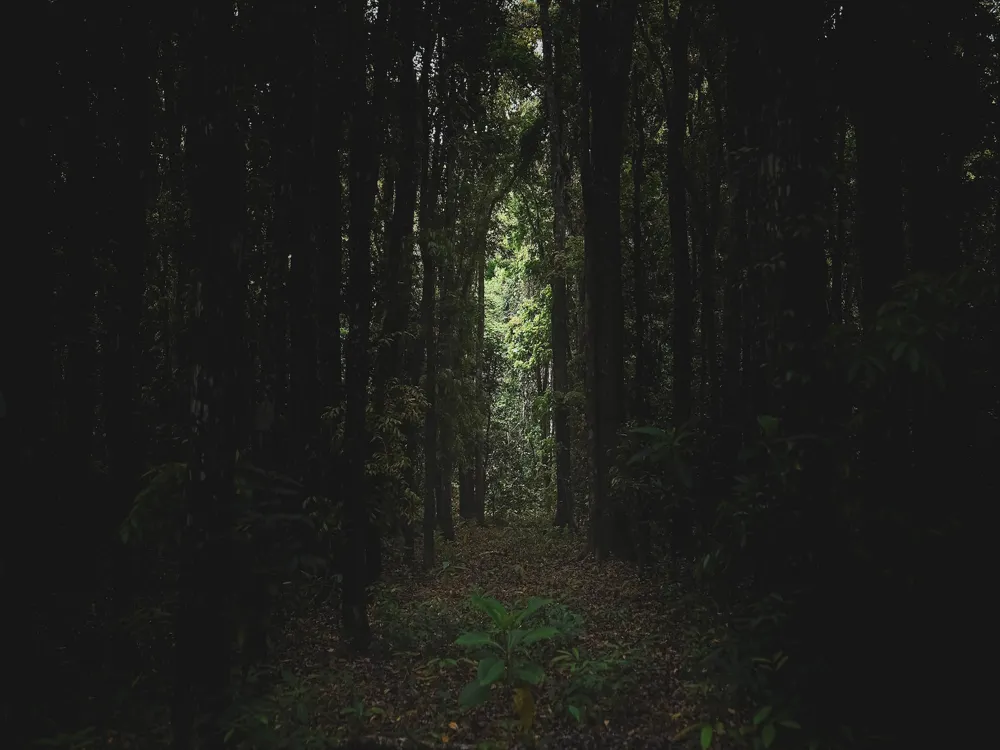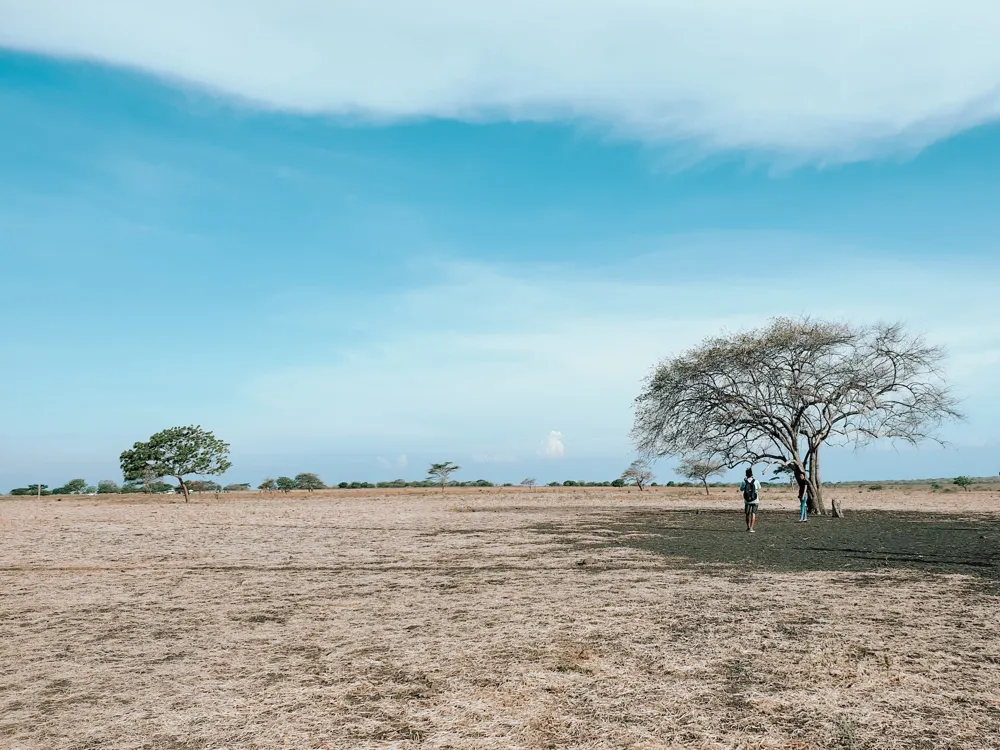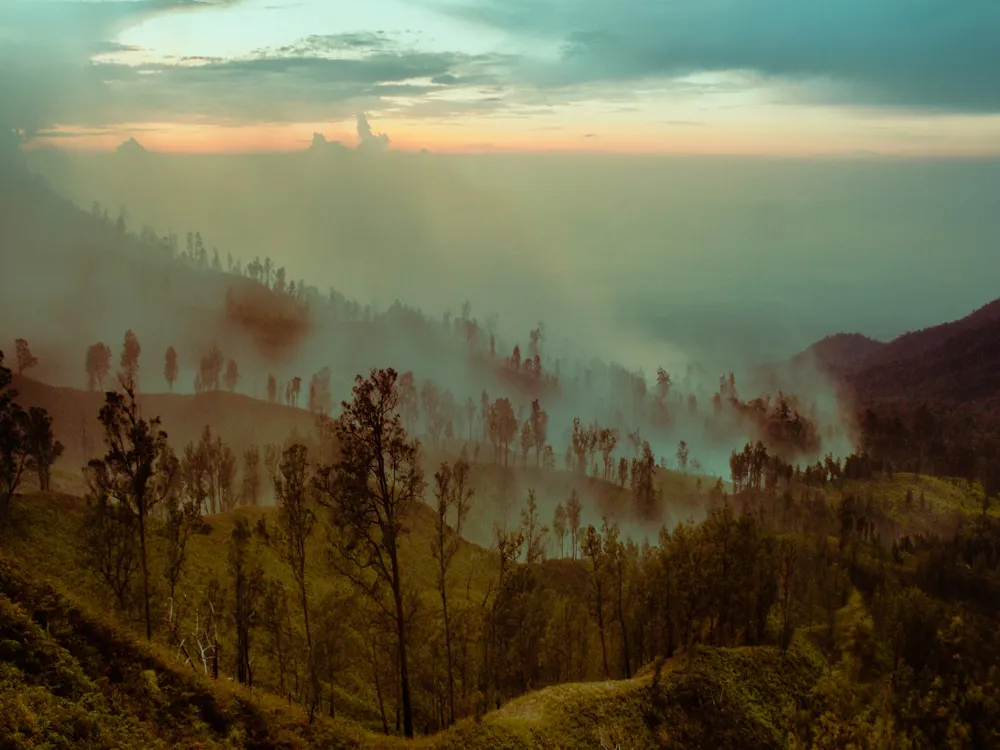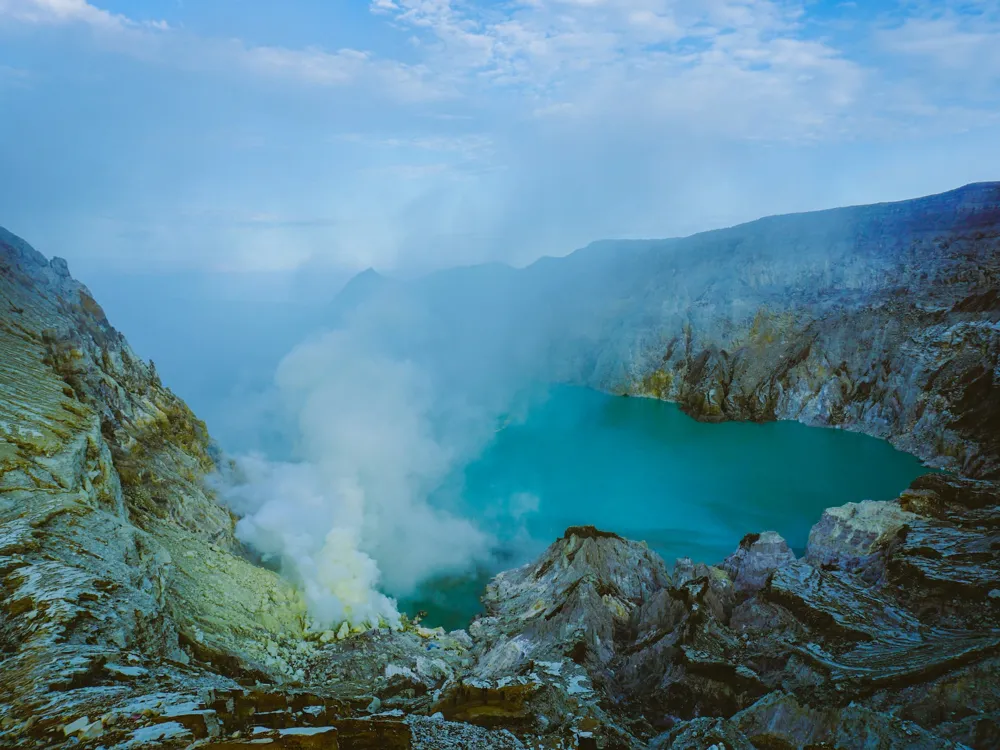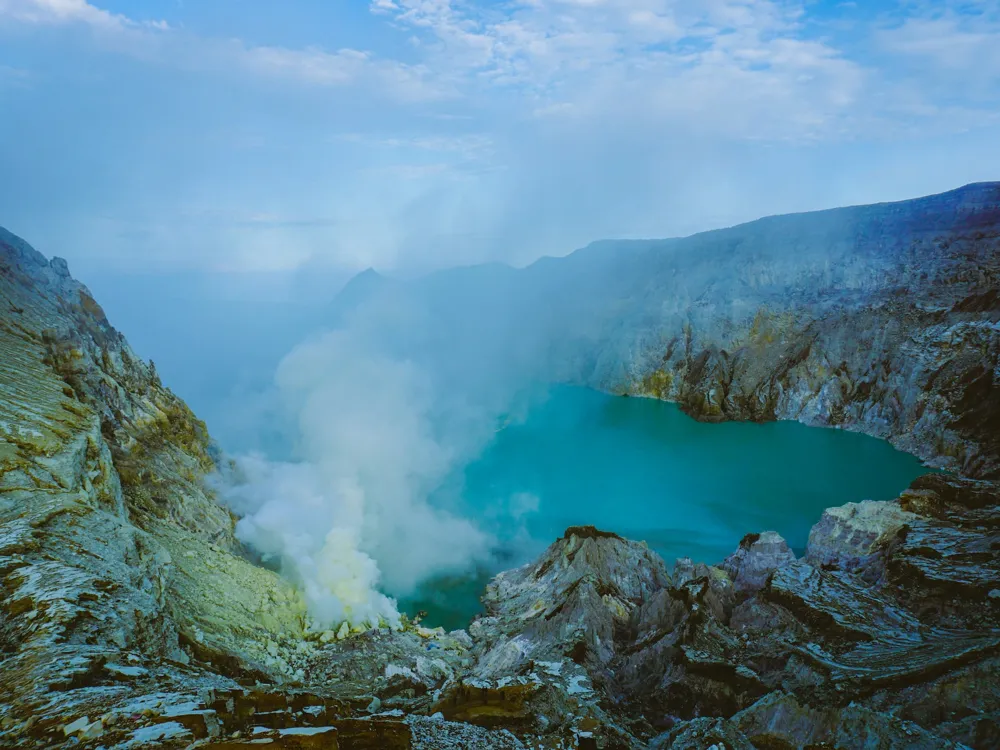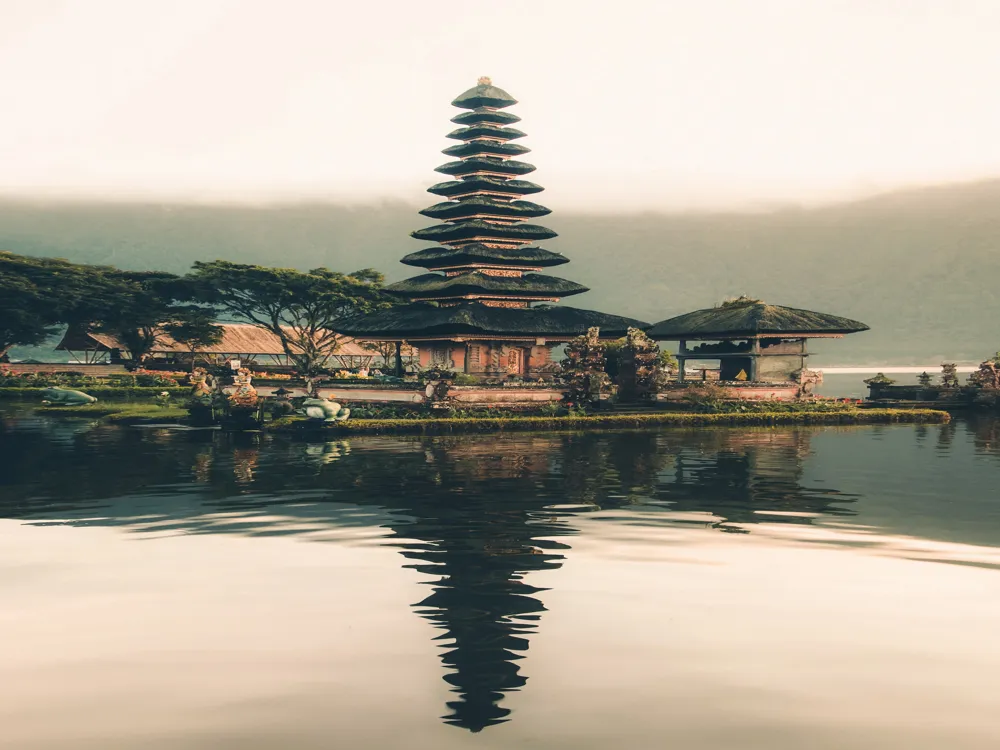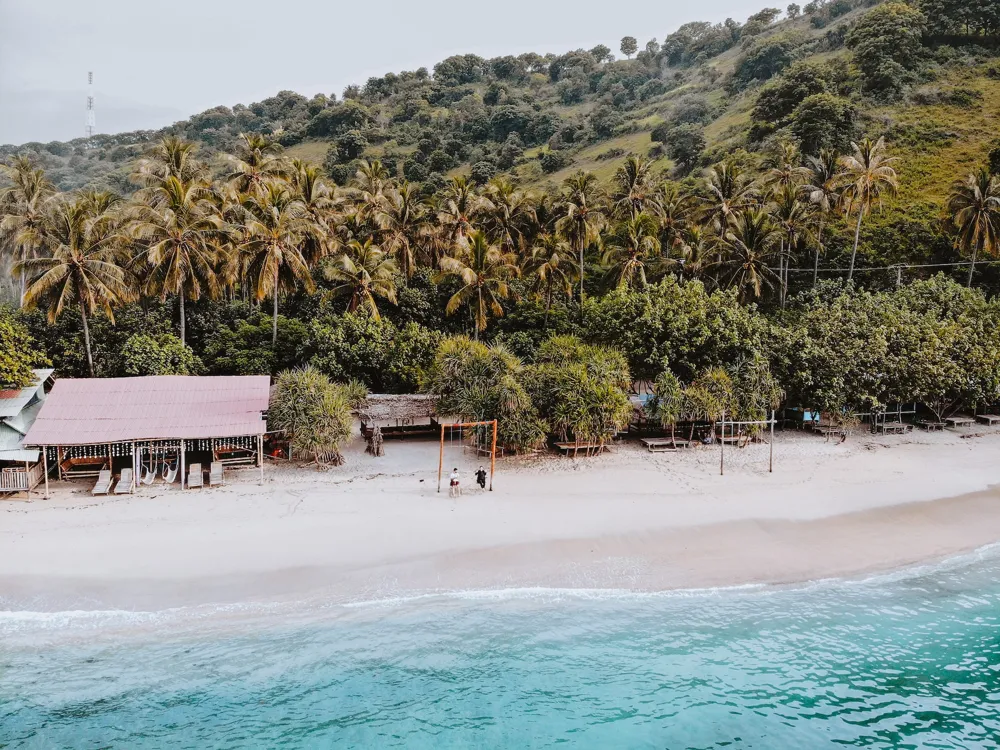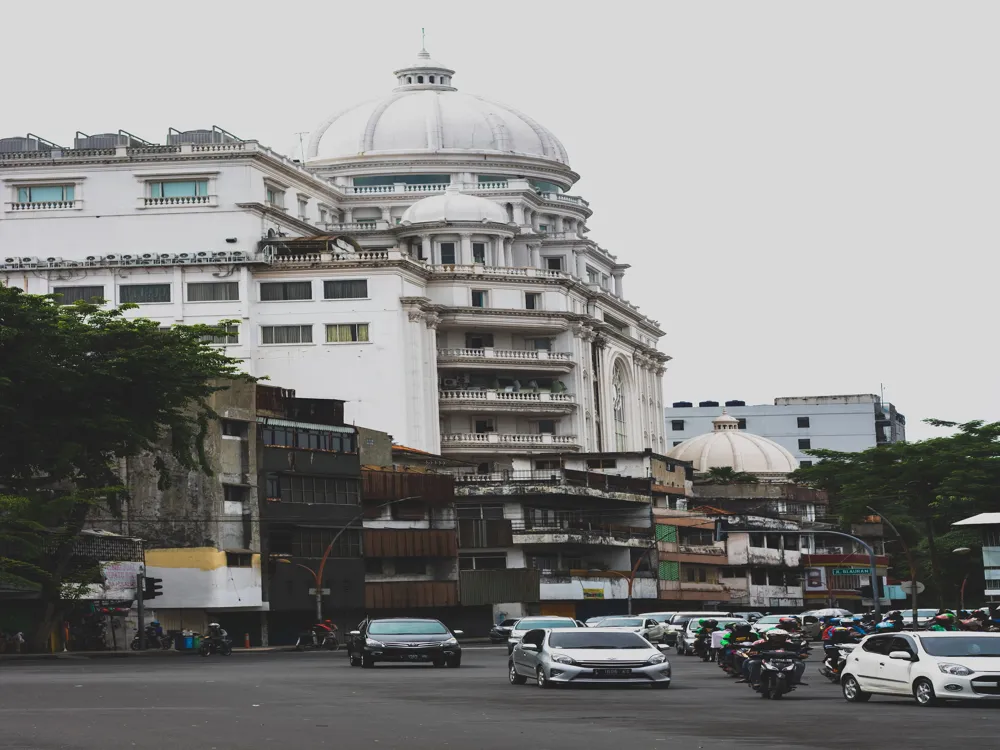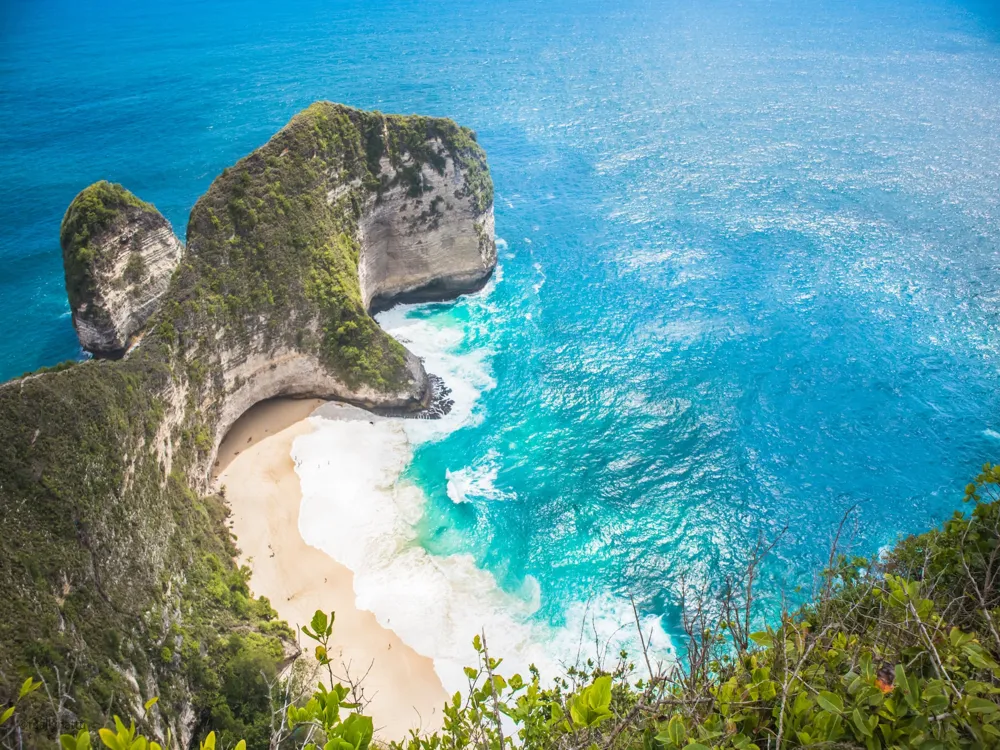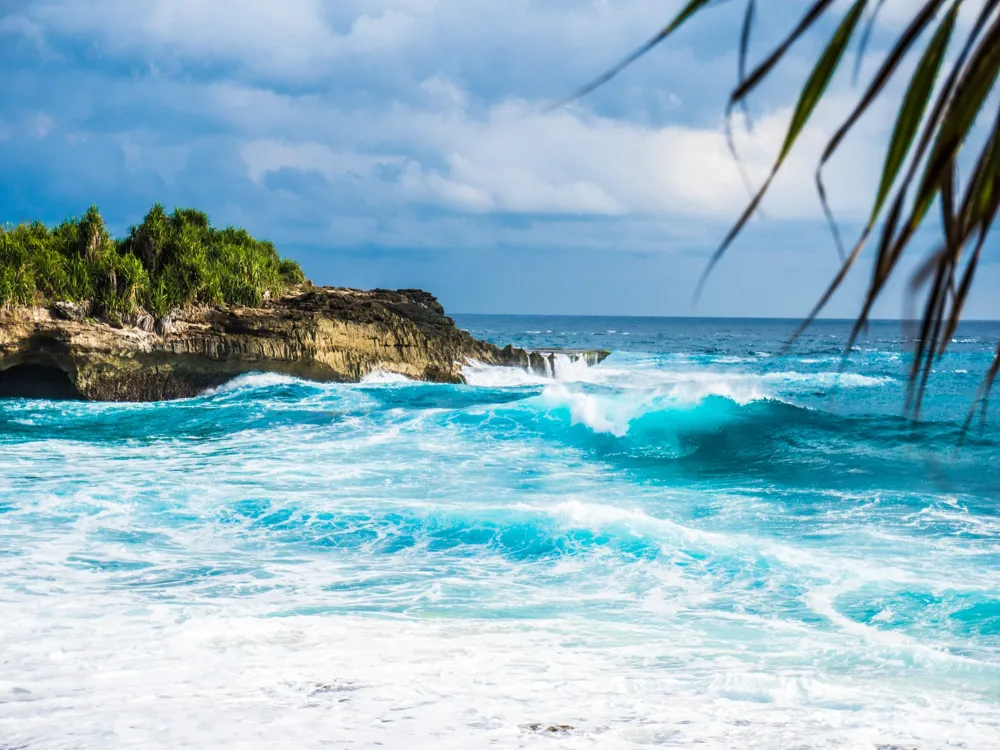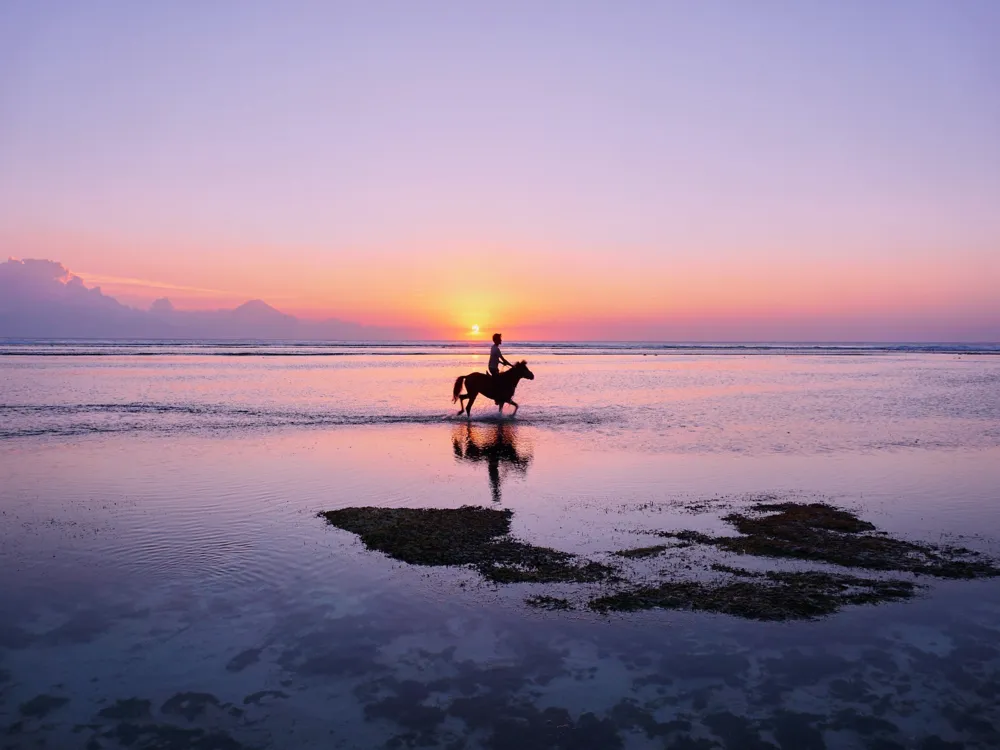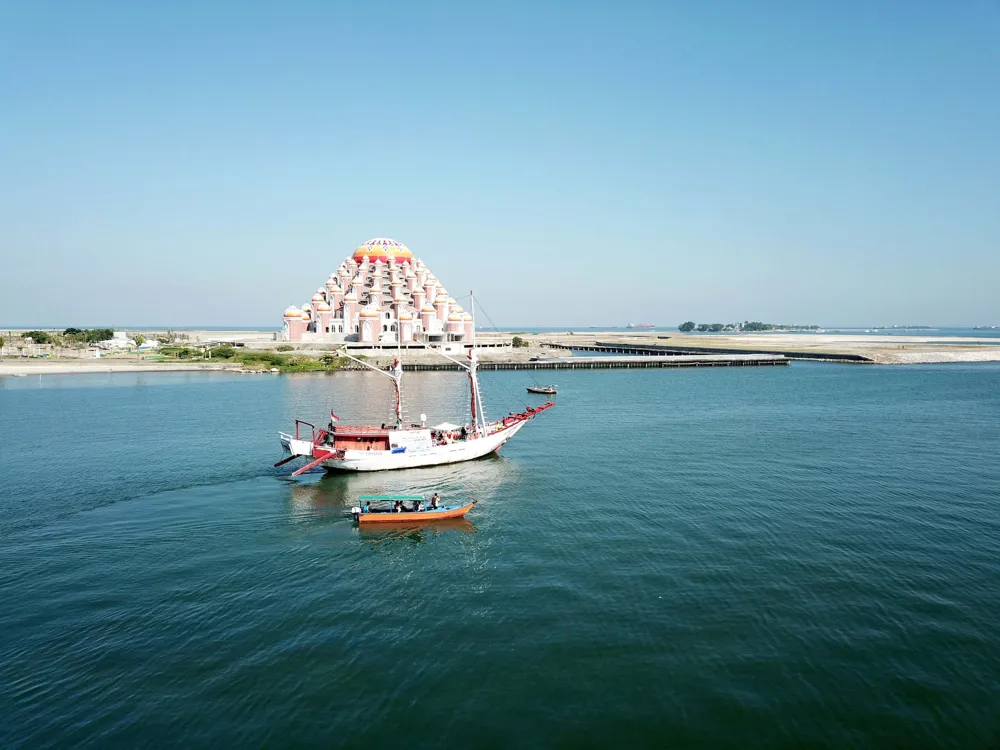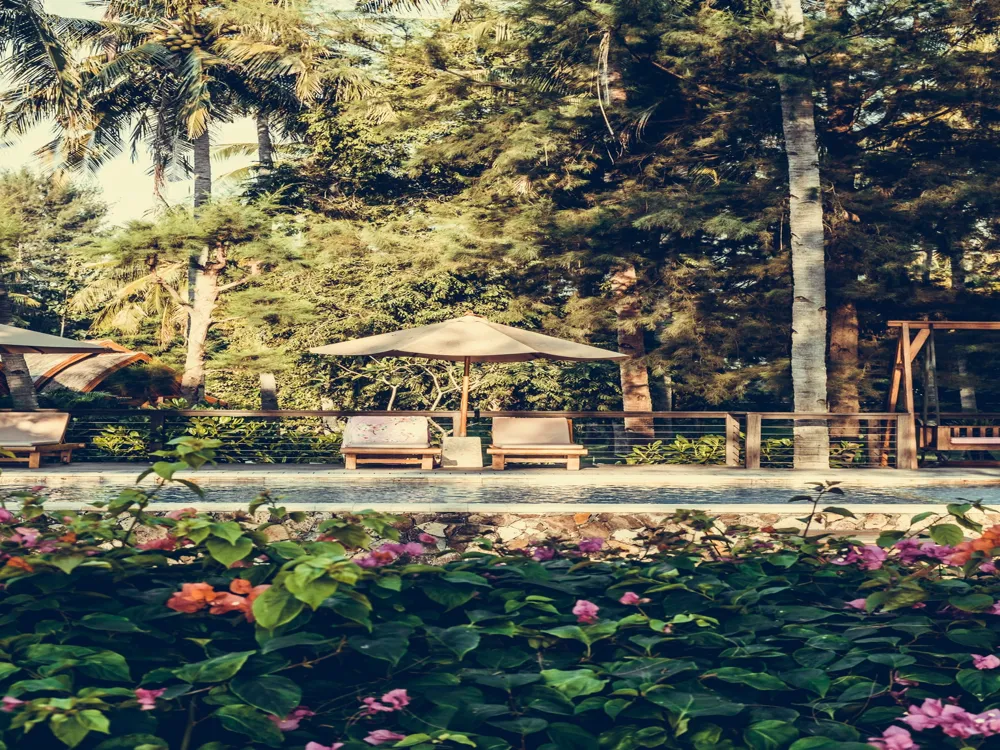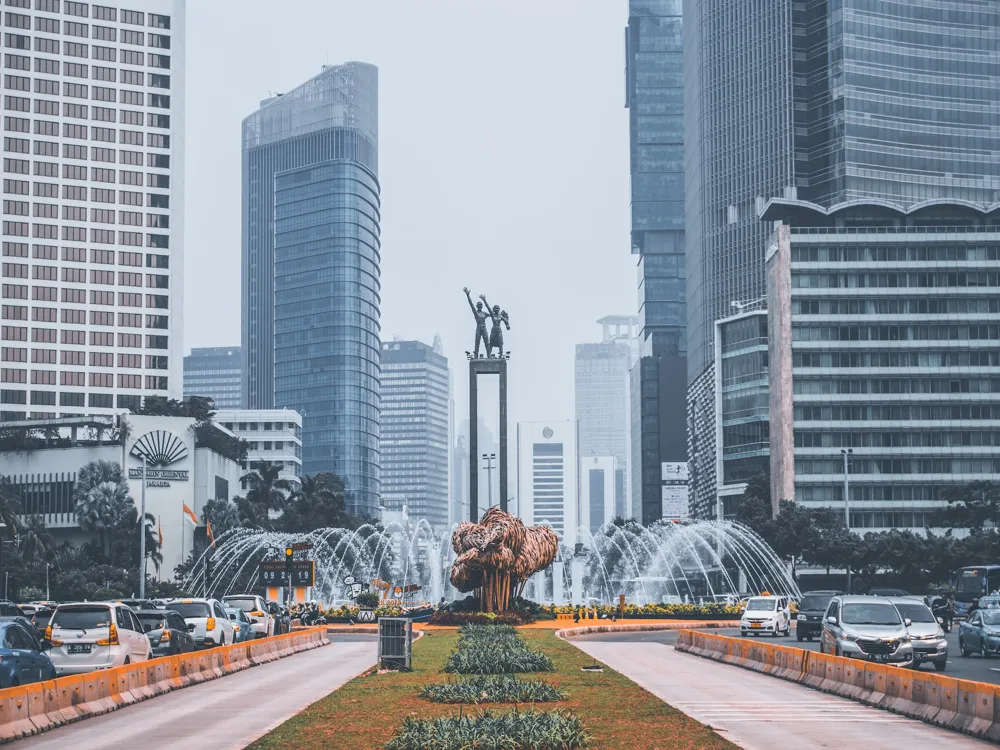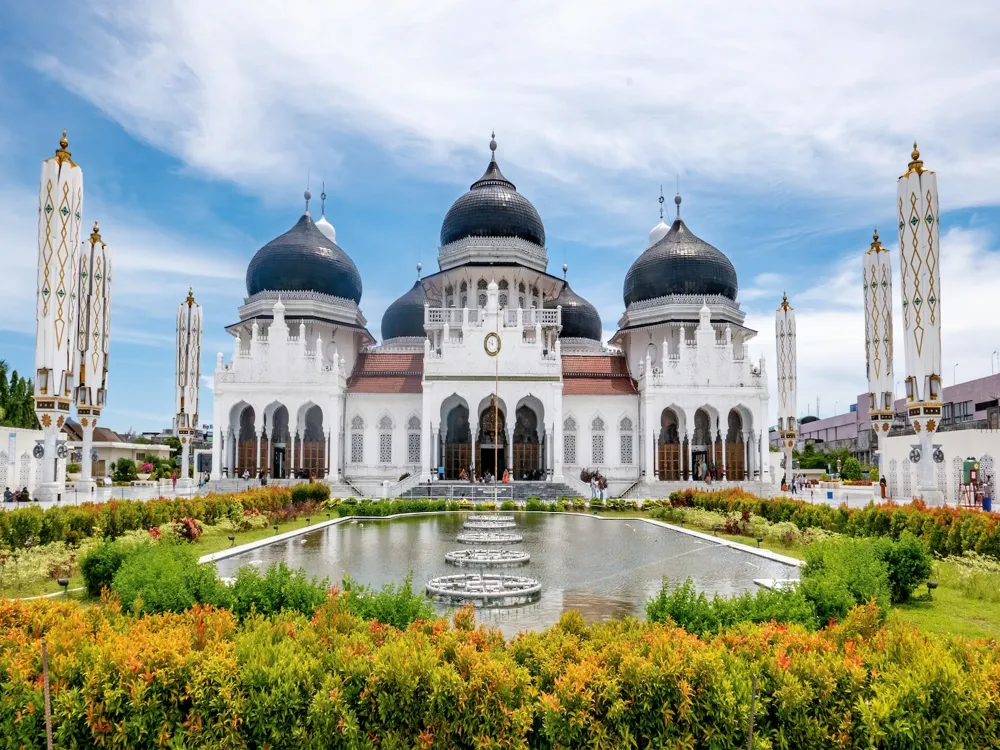Alas Purwo National Park, located in the Banyuwangi Regency of East Java, Indonesia, is a mesmerizing natural paradise that spans over 434 square kilometers. Known for its rich biodiversity and unique ecosystems, the park is a haven for nature enthusiasts and wildlife researchers. It encompasses a variety of landscapes, including savannas, mangroves, lowland monsoon forests, and coral-fringed beaches, making it a remarkable destination for exploring Indonesia's natural beauty. The name 'Alas Purwo' translates to 'First Forest' in Javanese, signifying its ancient roots and cultural significance. The park's history is steeped in local folklore and myth, believed by many to be the site where the earth first emerged from the ocean. This mystical aspect adds a layer of intrigue to the already captivating natural scenery. The park is not only a conservation area for flora and fauna but also a place of spiritual importance, with several sacred sites scattered throughout its expanse. Alas, Purwo is renowned for its diverse wildlife, including the endangered Javanese bull, or banteng, and various species of birds, reptiles, and primates. Birdwatchers can delight in the opportunity to spot rare species like the Green Peafowl and the Javan Hawk-Eagle. The park's pristine beaches are nesting grounds for sea turtles, adding to its ecological significance. The park's flora is as diverse as its fauna. It hosts a wide range of plant species, from coastal vegetation to dense lowland forests. The mangrove forests are particularly crucial for the ecosystem, providing a habitat for numerous marine and bird species. The lush monsoon forests are home to towering trees, under which a variety of medicinal plants used by local communities thrive. Conservation is a key focus in Alas Purwo. Efforts are ongoing to protect the endangered species residing within the park and to preserve its unique ecosystems. The park authorities collaborate with local communities and international organizations to implement conservation projects and promote sustainable tourism practices. The park's cultural significance is highlighted by the presence of various ancient Hindu temples and sacred caves. These sites are not only of archaeological interest but also hold spiritual value for the local communities. The annual ceremonies and rituals performed here are a testament to the park's rich cultural heritage. The architecture within Alas Purwo National Park is a blend of natural and man-made structures, harmoniously integrated into the landscape. The park's infrastructure, designed to minimize environmental impact, includes eco-friendly visitor centers, observation towers, and wooden walkways that allow visitors to explore without disturbing the natural habitat. The traditional architecture is evident in the design of the park's lodges and ranger stations, which often use local materials and construction techniques. These structures are built with a deep respect for the surrounding environment, often featuring open-air designs that blend seamlessly with the natural setting. Visitor facilities in the park are designed to offer comfort while maintaining an eco-friendly approach. The accommodation options range from basic camping sites to more comfortable lodges, all constructed with sustainable materials and practices. Information centers and guided tour facilities are available to educate visitors about the park's biodiversity and conservation efforts. The park also houses educational and research facilities, including a nature museum and research stations. These facilities are instrumental in promoting environmental education and facilitating research on the park's unique ecosystems and wildlife. The architectural design within Alas Purwo National Park is a testament to the successful integration of traditional and modern designs, ensuring that the infrastructure supports conservation efforts while providing an immersive experience for visitors. Alas Purwo is best visited during the dry season, from April to October, when the weather is more predictable, and the trails are accessible. Essential items include comfortable hiking shoes, insect repellent, sun protection, and a reusable water bottle. Binoculars are recommended for bird watching. Visitors should maintain a safe distance from wildlife and refrain from feeding or disturbing animals. It's crucial to follow the 'Leave No Trace' principles. Alas, Purwo National Park is accessible from Banyuwangi by road. Visitors can take a bus or hire a car to reach the park. The nearest airport is Banyuwangi Airport, with regular flights from major cities in Indonesia. From the airport, the park is approximately a 2-hour drive. Read MoreOverview of Alas Purwo National Park in Banyuwangi
Flora and Fauna of Alas Purwo
Conservation Efforts in Alas Purwo
Cultural Significance
Architecture of Alas Purwo National Park
Visitor Facilities
Educational and Research Facilities
Integration of Traditional and Modern Designs
Tips When Visiting Alas Purwo National Park
Best Time to Visit
What to Bring
Respecting Wildlife and Nature
How To Reach Alas Purwo National Park
Alas Purwo National Park
Banyuwangi
NaN onwards
View banyuwangi Packages
Weather :
Tags : National Park
Entry Fees : Foreign Tourist - IDR 150.000
Camping - IDR 5.000
Trekking - IDR 5.000
Caving - IDR 5.000
Wildlife Observation - IDR 10.000
Camera Fee - IDR 10.000
Timings : The Alas Purwo National Park’s gates are open 24/7
The ticket counter is open from 07:30 - 16:30 and it is closed on Saturday and Sunday.
Planning a Trip? Ask Your Question
Banyuwangi Travel Packages
View All Packages For Banyuwangi
Top Hotel Collections for Banyuwangi

Private Pool

Luxury Hotels

5-Star Hotels

Pet Friendly
Top Hotels Near Banyuwangi
Other Top Ranking Places In Banyuwangi
View All Places To Visit In banyuwangi
View banyuwangi Packages
Weather :
Tags : National Park
Entry Fees : Foreign Tourist - IDR 150.000
Camping - IDR 5.000
Trekking - IDR 5.000
Caving - IDR 5.000
Wildlife Observation - IDR 10.000
Camera Fee - IDR 10.000
Timings : The Alas Purwo National Park’s gates are open 24/7
The ticket counter is open from 07:30 - 16:30 and it is closed on Saturday and Sunday.
Planning a Trip? Ask Your Question
Banyuwangi Travel Packages
View All Packages For Banyuwangi
Top Hotel Collections for Banyuwangi

Private Pool

Luxury Hotels

5-Star Hotels

Pet Friendly







